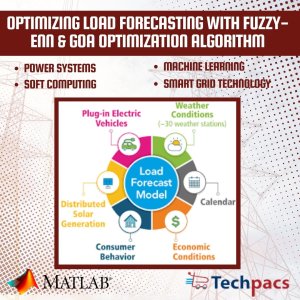Genetic Algorithm-Based Home Energy Management System with Dynamic Weather Consideration
Problem Definition
The current state of Home Energy Management Systems (HEMS) faces numerous limitations and challenges that hinder their effectiveness in optimizing electricity usage and reducing costs. One major issue is the presence of constrained optimization problems, which make it difficult to schedule appliances efficiently within smart homes. Additionally, the increasing electricity costs further complicate the task of managing energy consumption effectively. Despite various approaches being developed to address these issues, a common problem persists in the form of slow convergence rates and local optima traps within optimization algorithms used in HEMS. This leads to higher complexity and suboptimal scheduling of appliances, as devices with lower priority may be operating when demand is high for higher-priority devices.
Moreover, the existing systems lack consideration for changing weather conditions, which have a significant impact on load scheduling. By neglecting weather fluctuations, electricity distribution to various appliances may not be optimized. The existing literature points towards the necessity for an improved HEMS that can address these limitations, optimize load demand, and reduce electricity costs effectively.
Objective
The objective is to develop a new approach for Home Energy Management Systems (HEMS) using Genetic Algorithm (GA) to improve load scheduling and optimization. This proposed GA-based HEMS aims to efficiently schedule appliances in smart homes, reduce electricity costs, and meet load demands. By addressing the current limitations such as slow convergence rates, local optima traps, and lack of consideration for changing weather conditions, the objective is to provide a more effective and optimized solution for managing energy consumption in smart homes. The focus is on enhancing the overall performance and efficiency of HEMS by integrating GA, introducing device priority, and considering dynamic weather conditions to overcome the challenges faced by existing systems.
Proposed Work
In this project, the focus is on addressing the existing limitations of Home Energy Management Systems (HEMS) by proposing a new approach that utilizes Genetic Algorithm (GA) for load scheduling and optimization. The key objective of this proposed GA-based HEMS is to not only efficiently schedule appliances in smart homes but also reduce electricity costs for customers while meeting their load demands. GA was chosen as the optimization algorithm due to its high convergence rate and ability to avoid getting stuck in local optima. It also has the capability to generate multiple optimal solutions with minimal information available. Additionally, the concept of device priority is introduced in the proposed work to ensure that higher priority devices operate before lower priority ones.
Furthermore, considering the significant impact of changing weather conditions on load scheduling, dynamic weather conditions are taken into account in the proposed approach to enhance the effectiveness and efficiency of device scheduling.
The research gap identified from the literature survey highlighted the need for an improved HEMS that can overcome the challenges faced by current systems, such as constrained optimization problems and increased electricity costs. Most existing HEMS lack efficient optimization algorithms, leading to slow convergence rates and issues with local optima. Moreover, the absence of a priority concept in current systems results in lower priority devices operating during times of high demand for higher priority devices. By integrating GA into the proposed HEMS and incorporating dynamic weather conditions, the goal is to provide a more effective and optimized solution for load scheduling in smart homes, ultimately reducing electricity costs and meeting customer load demands efficiently.
The rationale behind choosing GA and including device priority and weather conditions lies in their potential to enhance the overall performance and efficiency of the HEMS, addressing the identified research gap comprehensively.
Application Area for Industry
This project can be applied in various industrial sectors such as residential, commercial, and industrial buildings where the effective management of energy consumption is crucial. The proposed solutions in the form of Genetic Algorithm-based Home Energy Management System address the challenges faced by industries in optimizing energy consumption, reducing electricity costs, and ensuring efficient scheduling of appliances. By introducing the concept of device priority and considering dynamic weather conditions, the proposed system ensures that the most critical devices are operated when needed and adapts to changing environmental factors. Implementing this solution in industries would result in reduced electricity bills, increased energy efficiency, and improved overall performance of energy management systems. Additionally, the high convergence rate of Genetic Algorithm enables quick and effective optimization of energy consumption, making it a valuable tool for various industrial domains facing energy management challenges.
Application Area for Academics
The proposed project on Genetic Algorithm based Home Energy Management System (HEMS) can greatly enrich academic research, education, and training in the fields of optimization algorithms and smart home technologies. By addressing the current limitations of traditional HEMS systems such as slow convergence rates and lack of consideration for changing weather conditions, the project opens up new avenues for research in efficient load scheduling and cost reduction in energy management.
The relevance of this project lies in its potential applications for pursuing innovative research methods, simulations, and data analysis within educational settings. Researchers, MTech students, and PHD scholars can utilize the code and literature of this project to explore the application of Genetic Algorithms in smart home technologies and optimization problems. The project provides a practical example of how GA can be used to improve the efficiency and effectiveness of HEMS, offering valuable insights for further research and development in this area.
Moreover, the incorporation of device priority concept and dynamic weather conditions in the proposed HEMS system enhances its practical applicability and relevance in real-world scenarios. By considering these factors, the project contributes to the advancement of research in HEMS optimization and energy-efficient scheduling techniques.
In conclusion, the proposed project has the potential to significantly enrich academic research, education, and training by providing a novel approach to addressing the challenges in Home Energy Management Systems. Future research in this domain could explore additional optimization algorithms, integration of IoT technologies, and scalability of the proposed system to larger smart home networks.
Algorithms Used
The proposed work utilizes Genetic Algorithm (GA) for scheduling and optimizing loads in a Home Energy Management System (HEMS). GA is chosen for its high convergence rate and ability to generate multiple optimal solutions for a given problem with minimal information. The GA-based HEMS aims to reduce electricity bills for customers while meeting their load demands. Device prioritization is introduced to schedule high priority devices first, followed by lower priority devices. Dynamic weather conditions are also considered in the scheduling process to enhance efficiency and effectiveness of the device scheduling in varying climate conditions.
Keywords
SEO-optimized keywords: constrained optimization problem, electricity cost, HEM systems, scheduling appliances, optimization algorithms, slow convergence rate, local optima, energy management system, priority concept, changing weather conditions, load scheduling, home appliances, improved HEMS, Genetic Algorithm, electricity bill reduction, device priority, climate conditions, dynamic weather conditions, energy efficiency, load forecasting, smart homes, demand-side management, renewable energy integration, smart grid, energy conservation, home automation, power scheduling, artificial intelligence
SEO Tags
problem definition, constrained optimization, increased electricity cost, HEM systems, approaches, scheduling appliances, smart homes, optimization algorithms, convergence rate, local optima, energy management system, device priority, changing weather conditions, load scheduling, electricity supply, improved HEMS, traditional HEMS, Genetic Algorithm, load optimization, electricity bill reduction, device prioritization, climate conditions, dynamic weather conditions, device scheduling, energy consumption, energy efficiency, renewable energy integration, smart grid, home automation, power scheduling, artificial intelligence.
| Shipping Cost |
|
No reviews found!

















































No comments found for this product. Be the first to comment!